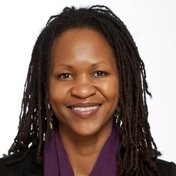Diversity and Inclusion (D&I) professionals discussed the importance of celebrating Black History all year round, not just during the month of October, at the latest Diversity Forum organised by the Clear Company. The event’s expert speakers share some of their findings on how network groups can achieve this through their ability to share diverse voices, maintain conversations and support the delivery of their D&I strategy.
While Black History Month is an excellent opportunity to celebrate Black history and colleagues, Susan Abumere, Race Equality Consultant at the Clear Company, highlighted the importance of celebrating throughout the year. “When organisations focus on race equality as business-as-usual, they avoid falling into the pattern of having the same conversations year on year; and Black History Month can become a moment to take stock of race equality and focus on what the organisation and senior leaders are doing to fulfil their role as allies and support change,” according to Abumere.
This also has a positive impact on wellbeing. But when conversations take place only in October, it can become very stressful for colleagues involved in the networks, Abumere pointed out. Her recommendations include:
- Create your own traditions that don’t have to be centred on a particular week or celebration. For example, try a week where the focus is on having courageous conversations.
- Consider ways to facilitate employee connections in order to boost cultural awareness and sensitivity.
- Engaging senior leaders through roundtable discussions and workshops is essential.
- Leverage communal knowledge and experience about racial inclusion. Creating a safe space for colleagues to share their lived experience goes a long way in retaining diverse talent.
- Review governance so the focus on racial inclusion isn’t lost in broader D&I goals. Make it specific and visible.

PROGRESSING D&I STRATEGY
Employee networks are an excellent way of supporting and progressing the D&I strategy; and with good governance in place, it can help to keep focus and momentum for race equality and other strands. This also has the impact of encouraging all networks to work together and become truly intersectional.
Mark Lomas, Head of Equality, Diversity & Inclusion (EDI) at HS2 has delivered numerous diversity and inclusion projects in the UK and internationally for organisations. He highlighted the key points of structure, governance and impact that enable the employee networks at HS2 to operate effectively and support its EDI strategy. They include:
- Aligning the employee networks to the HS2 values and EDI strategic goals means their objectives, activity and measures of success support the central EDI values and aims.
- Terms of reference for each network define the expectations of them and what their funding will be; network Chairs are part of the EDI steering group providing a direct link between both parties.
- Senior leaders have objectives and accountabilities related to the networks.
- Openness and transparency – regular updates enable the networks to share activity and feedback with the EDI team; and understand the latest EDI updates and diversity data so that everyone knows what is successful and what is harder to change.
- Participation in activity and employee feedback is used to measure impact and progress.
But it’s “not just once a year event”, Lomas also highlighted. “At HS2 a constant drumbeat and activity of monthly sessions and courageous conversations are central to change. Linking the networks to the HS2 values has been core to keeping members engaged and improving understanding about organisational values and how they work day to day.”

STAYING ON COURSE
Bola Gibson, Head of Inclusion and CSR at law firm Osborne Clarke reflected on how “networks can be very powerful”. “But they can also flounder easily,” she noted. “Race networks are challenging to run as much of the activity can be emotionally taxing. It’s important to put thought into how they’re set up; and the activities and support for the people who run it.”
Her top tips include:
- Governance is incredibly important, especially where networks have started organically. Define the roles will people have; who their stakeholders are; where accountability lies; and how they link with executive sponsors and formal teams, such as accounting or HR.
- Networks need to be clear about their role and objectives; a critical friend that challenges the organisation to do better.
- Terms of reference are essential to keep activity focused and on track.
- Plan ahead with three, six and 12 month plans so that activity is thoughtful and strategic.
- Agree how progress will be measured.
- Take the time to reflect and consider the wellbeing of the people within the network. Big events like Black History month are good opportunities to reflect on the network achievements; and the people that made it happen.

Discussions showed consensus that employee networks have a major role to play in advancing the D&I strategy through their ability to keep momentum and focus; and create safe spaces for employees to share their experiences. However, success requires transparency and a whole organisation approach from senior leadership through to all employees.
MORE ABOUT THE EXPERTS
Bola Gibson is an experienced and passionate Corporate Responsibility, Inclusion and Sustainability leader. She is currently Head of Inclusion and Corporate Responsibility at Osborne Clarke; with a brief that covers D&I, Wellbeing, Community and Environment.
Mark Lomas, Head of Equality, Diversity & Inclusion at HS2, has delivered numerous diversity and inclusion projects in the UK and internationally for organisations across a wide variety of sectors, including The Financial Reporting Council, Lloyds Market Association, Inclusive Recruitment review etc. He is a published author on the topic of Equality and Diversity; having authored the Law Society E&D Risk & Compliance Toolkit.
Susan Abumere, Race Equality Consultant at The Clear Company with experience in using solution-focused approaches to selection and assessment, leading on research projects with clients in the private and public sectors; and most recently has conducted a Race Equality audit for a global agricultural business. Abumere is particularly passionate about promoting cultural intelligence in the workplace. In a recent article, she explains why a ‘glocal’ D&I strategy will better serve employees working in multiple regions across the globe. Click here to read more.







































